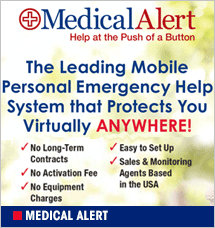
Three times this week, someone asked me to help a family member navigate a health crisis. The middle of a crisis is not the time to plan how to handle the crisis. In my professional and personal life, I am tied to our healthcare system as a hospital executive, a volunteer in a rehab agency that serves more than 6,000 people a year, and as a daughter. My mother, who passed away in 2012, had dementia for more than a decade. I helped my father and brother navigate the health care system where they live. As my father declines, I’m the back-up for my brother who lives near him.
While not a clinician, I am often consulted about hacking through the jungles that are a present day hospital. And it may seem — in the middle of the flora and fauna — that a machete is the only tool that can get through it all.
There are some battles not worth fighting. Put your efforts toward what is really important.
- Accept that you are the advocate. A friend described her situation, "When I agreed to help, I had no idea how much responsibility this would involve."
Unfortunately, there is no one person in the healthcare system who is going to be responsible for your loved one's care. No case manager, no floor nurse, no hospice person knows as much about your loved one as you do. Your family member may be lucky and have a special person to coordinate care, but that nurse or social worker may also have 30 other patients at the same time they are helping you. This may frustrate you. Accept it and move on. Appoint yourself or a family member for this role of coordinating paperwork, appointments, etc.- Keep your paperwork in one place. Why are the same questions asked again and again? The system is moving to electronic medical records (EMRs), but not all health organizations are yet mandated to comply. Computer systems depend on flawless communications and anything from weather to a power surge can affect the system. Avoid, or at least mitigate this headache, by keeping relevant information (medications, doctor’s name and contact info, insurance and Medicare cards) in a small notebook kept with you.
- Let providers know what you need. Individuals who choose health as a career are often generous and caring, but not mind-readers. If you advocate for a person who cannot, speak up. Tell all caregivers what you or the patient needs. Medical providers generally want your engagement in the care of your loved one. If you miss the doctor at the hospital, make an appointment in his/her office and get your concerns out in the open. Take a list with written questions.
- If offered additional services, use them. Many long-term or chronic patients will be assigned a case manager within a facility. Case managers or care coordinators as they are sometimes called, often have weekly conferences with members of a patient’s care team. You may be able to participate in the weekly conference and meet all them.
If your loved one is offered hospice or home health or rehab services, jump on board. Some people feel that a patient getting hospice means that death is imminent. It means that patients are no longer receiving aggressive treatment for their condition. The services include personal care, chaplaincy and psychological support for family members as well. Hospice often offers a grief support group for family members after a death.
My mother-in-law, who had congestive heart failure and multiple health conditions, was in hospice several years before she died. She was in long term care and had multiple admissions to the hospital for CHF. She was in her 80s and not getting better; the trips to the hospital were brutal for her. Hospice provided help for the nursing home staff to better manage her CHF episodes and keep her there. Home health may assist your family member in staying in his or her home longer and rehab may be a good interim step between surgery and home.- Ask questions about your bill. If confused or concerned about your bill, ask for a sit-down meeting with the hospital billing office. For most people, hospital bills might as well be written in Mandarin Chinese. Hospitals use something called the "chargemaster" which outlines procedure/equipment costs, and is generally not based in reality (thus, the $4 aspirin.) The price you finally pay is based on some factors, such as reasonable and customary charges, your negotiated contract, or where the planets align. If this confuses you, well, you are not alone. There are individuals and companies who exist solely to help families sort through medical bills. Their small fees may more than offset your upset as well as save you hundreds of dollars.
- Don’t beat yourself up. You are caring for someone who is ill, and you have all the responsibility. You are only human. Make sure that someone is taking care of you, or that you get a massage when you can or even a nice noon-time walk in the park. Get some respite. Get away from the hospital or the nursing home or your own home and all the problems, even just for a bit.
I have been a caregiver several times in my life, and, of course, I have some regrets. At my age now it seems all I talk about with my friends are caregiving issues, whether of a parent or spouse.
While things are currently stable in my family, I know there’s one final caveat about caregiving that’s really important: get your own affairs in order. Make sure you have a living will and a health care power of attorney on file with doctor, hospital, and your advocate. (https://www.nlm.nih.gov/medlineplus/advancedirectives.html). Do you want to be kept alive at all costs? Do you want to be on a ventilator? (Many people don't know that short-term ventilators are often used, and get very frightened when the issue is brought up.) Know what the lingo means before a crisis arises. If your family members know what your wishes are, you will have helped avoid making a bad situation worse.
Amy McVay Abbott is a long-time hospital executive who is also a writer. She’s the author of four books, including the recent “Whitley County Kid.” Learn more about her at www.amyabbottwrites.com.



























































